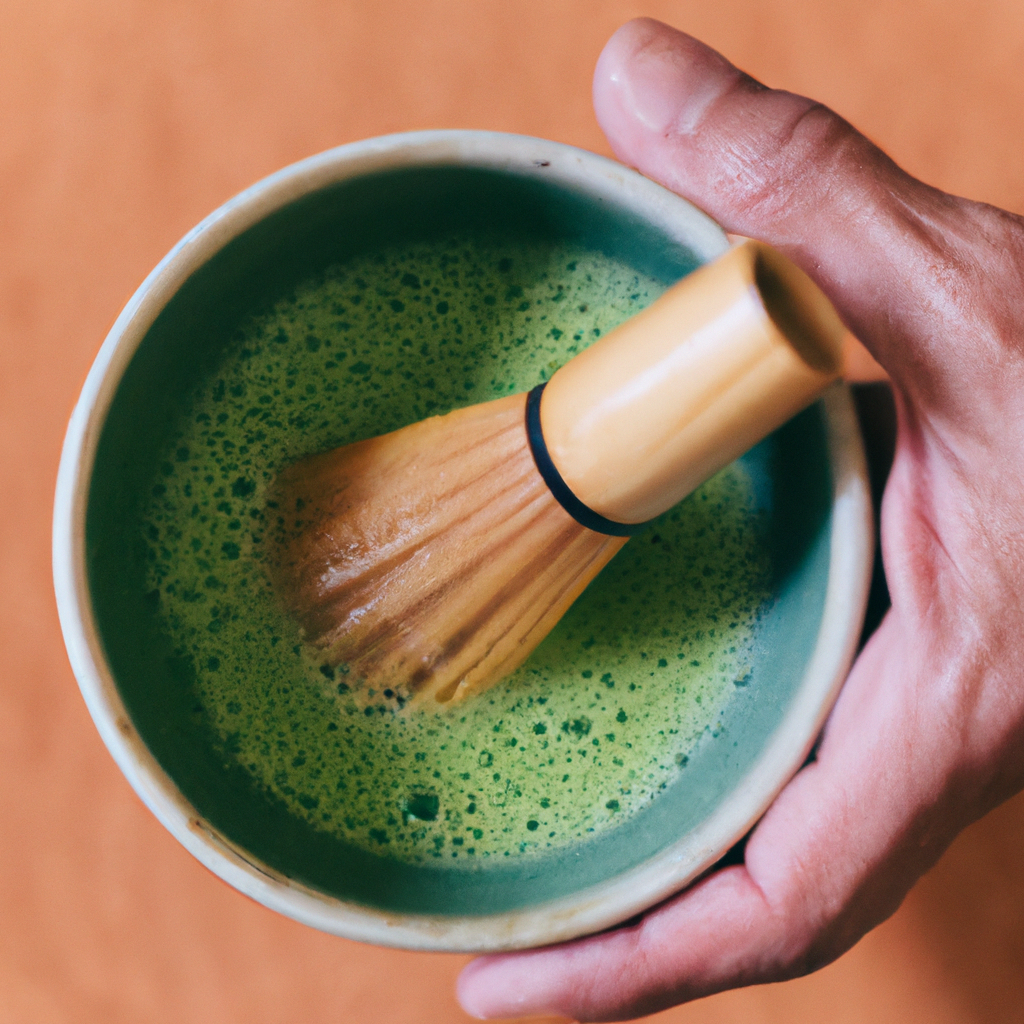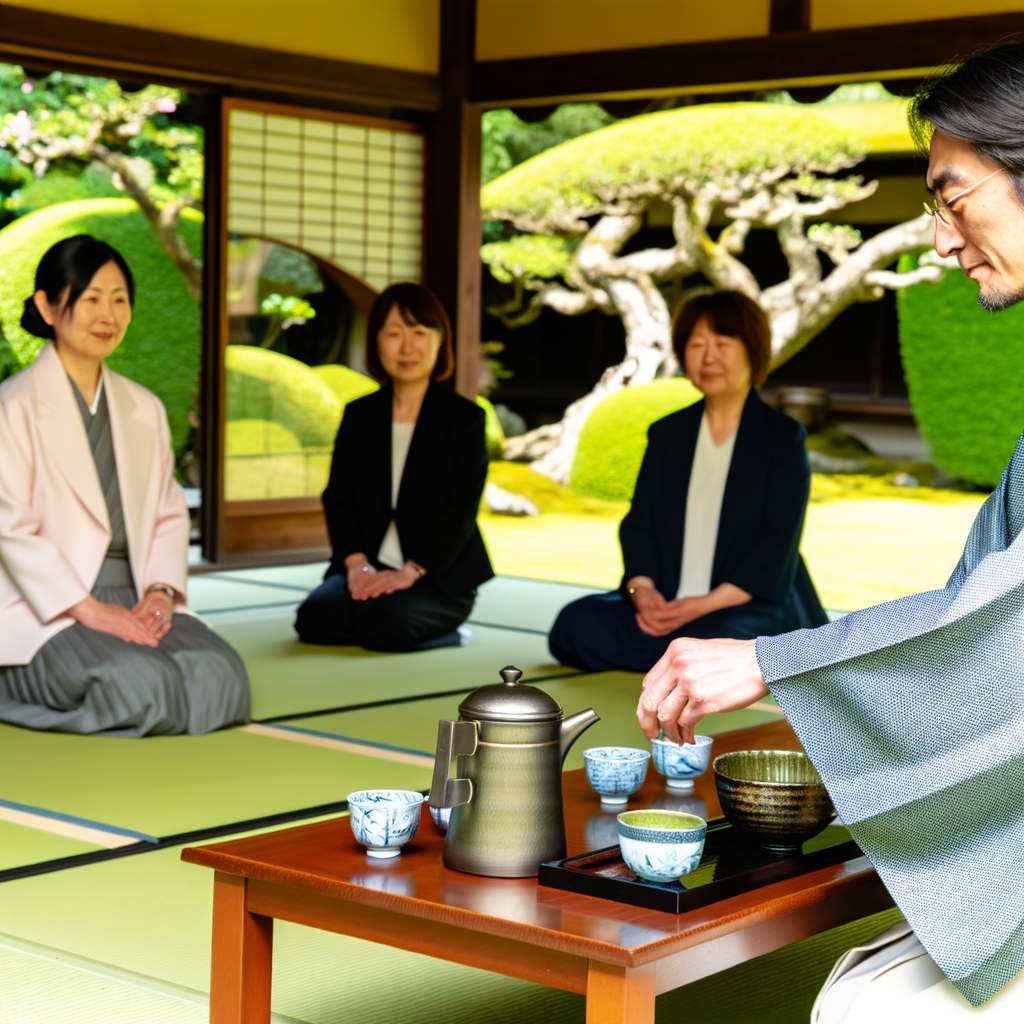Step into the serene world of Japanese tea ceremonies, where every movement is deliberate and every gesture is filled with meaning. In Japan, the art of tea has been refined and perfected over centuries, embodying principles of harmony, respect, purity, and tranquility. If you’re looking to immerse yourself in this ancient tradition, then join us as we explore how to experience a traditional tea ceremony in Japan.
1. Delving into the Art of Japanese Tea Ceremony
Experience the serene and intricate world of the Japanese tea ceremony, a tradition that dates back centuries and is deeply rooted in Japanese culture and hospitality. Immerse yourself in the art of preparing and serving matcha, a finely ground green tea that is the centerpiece of this ancient ritual.
During a traditional tea ceremony in Japan, you will have the opportunity to witness the meticulous movements of the tea master as they whisk the matcha to perfection and present it to you with grace and humility. The ceremony is a harmonious blend of precision, mindfulness, and respect for both the tea and the guests.
As you partake in this cultural experience, take the time to savor each sip of the rich and frothy matcha, allowing its flavors to envelop your senses. Let go of the hustle and bustle of everyday life and embrace the tranquility that comes with participating in such a time-honored tradition.
2. Understanding the Rituals and Etiquette Involved
During a traditional tea ceremony in Japan, it is essential to understand the intricate rituals and etiquette involved to fully appreciate the experience. The ceremony is not just about consuming tea, but about mindfulness, respect, and harmony.
One of the key components of the ceremony is the preparation of the matcha, a powdered green tea. The host meticulously prepares the tea by whisking the powder with hot water until a frothy consistency is achieved. This process symbolizes purity and tranquility.
Participants in the ceremony are expected to follow certain etiquette, such as bowing to show respect, using the right hand to hold the tea bowl, and sipping the tea in three respectful sips. It is important to be present in the moment and show gratitude for the tea and the host’s efforts.
3. Choosing the Right Tea Ceremony Experience for You
When it comes to experiencing a traditional tea ceremony in Japan, there are a few key factors to consider. The first step is deciding what type of tea ceremony experience you are looking for. Whether you are interested in a formal, traditional ceremony or a more casual, modern experience, there are options available to suit your preferences.
One option is to participate in a guided tea ceremony at a tea house or cultural center. This type of experience typically includes a demonstration by a tea master, followed by the opportunity for guests to try making their own matcha tea. This can be a great way to learn about the history and etiquette of the tea ceremony in a hands-on way.
For those looking for a more immersive experience, consider booking a private tea ceremony with a tea master. This type of experience allows for a more personalized and intimate setting, where guests can ask questions and learn more about the art of tea preparation. Additionally, some tea masters offer traditional tea ceremonies in outdoor settings, such as gardens or temples, for a truly unique experience.
4. Tips for Fully Immersing Yourself in the Tradition
One of the best ways to fully immerse yourself in the tradition of the Japanese tea ceremony is to pay attention to the small details. From the way the tea is prepared to the specific movements of the host, every aspect of the ceremony has deep meaning and significance.
One tip for fully experiencing a traditional tea ceremony is to focus on all five senses. Take in the aroma of the freshly prepared tea, the sound of the boiling water, the sight of the delicate teacups, the touch of the warm cup in your hands, and the taste of the tea itself. Engaging all your senses will allow you to truly appreciate the beauty and ritual of the ceremony.
Another key tip is to practice mindfulness during the tea ceremony. Clear your mind of any distractions and be fully present in the moment. Observe the movements of the host, the flow of the ceremony, and the interactions between guests. By staying mindful and attentive, you can deepen your understanding and connection to the tradition.
As you immerse yourself in the rich cultural tradition of a Japanese tea ceremony, allow yourself to be fully present in the moment. Let the gentle sounds of boiling water and the aroma of freshly brewed tea guide you on a journey of tranquility and mindfulness. By participating in this ancient ritual, you are not only savoring a cup of tea but also a slice of Japan’s history and heritage. So, the next time you find yourself in Japan, be sure to seek out a traditional tea ceremony for a truly unforgettable experience. Embrace the serenity, savor the simplicity, and let the tea carry you away to a place of inner peace and reflection. Arigatou gozaimasu (thank you) for joining us on this enlightening journey.
